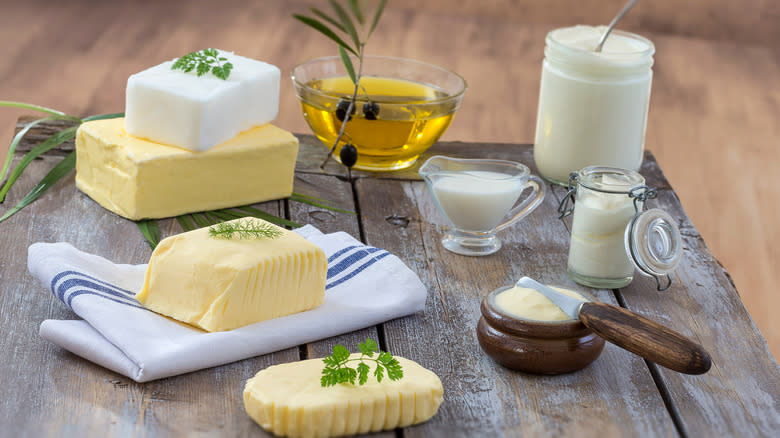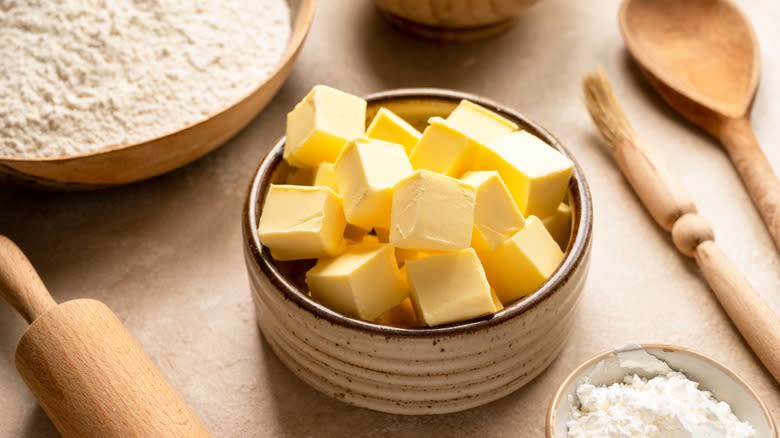The Ingredient You Need To Watch Out For When Buying Vegan Butter

There's more to know about vegan butter than simply which brand tastes best, especially if you're planning to bake with it. Plant-based butter substitutes contain various oils to replace the butterfat in dairy butter along with a handful of other ingredients for flavor and texture. When they've been whipped to be spreadable, there's a good amount of air as well. The oil is emulsified with the other ingredients to create the creamy texture we expect in butter, and although the texture may seem the same, what counts in baking is how much water and oil are in the product.
The percentage of oil compared to all the other ingredients is a key fact to know when you plan to use the product for baking. Recipes are usually developed with regular dairy butter in mind, which has up to 80% butterfat. If you substitute vegan butter with less oil, the recipe may not work as intended. When there's less oil, that leaves more room for water, which can also alter how baked goods turn out.
Read more: 30 Healthy Snack Ideas That Won't Ruin Your Diet
Picking The Right Vegan Butter

Check the ingredients on the vegan butter you buy. Oil should be the first on the list, not water. Many brands have the percentage of oil right on the package, with a statement reading something like "79% oil." This information will let you know if the brand is likely to be good for baking. If the package says it's whipped or spreadable, you know that air has been added to help keep the product soft for use right out of the fridge, but that's not what you want for baking — you won't have the right measurement of oil with that added air.
Like dairy butter, vegan butter should be softened for creaming with sugar or melted for incorporation into batters and doughs. If there's an abundance of water, then vegan butter might separate out into watery lumps when warm, which makes it a bad choice for baking and also not good for frostings. However, a vegan butter that's lower in oil might be great for sauteing or tossing onto warm veggies — there's a place in the kitchen for all styles, as long as you keep an eye on the ingredients.
Read the original article on Tasting Table.

